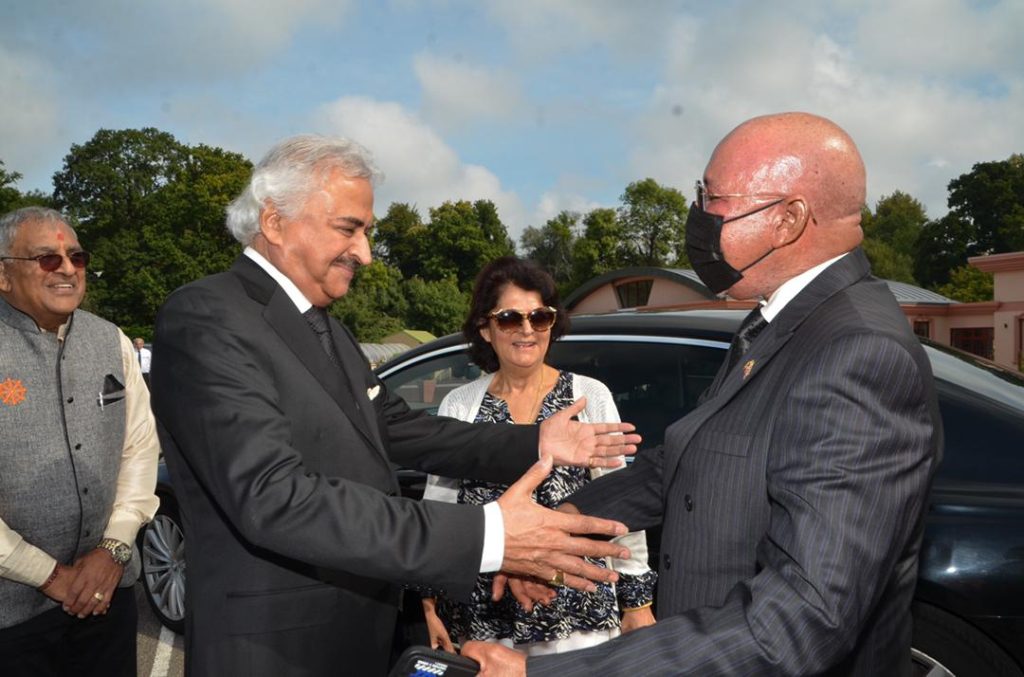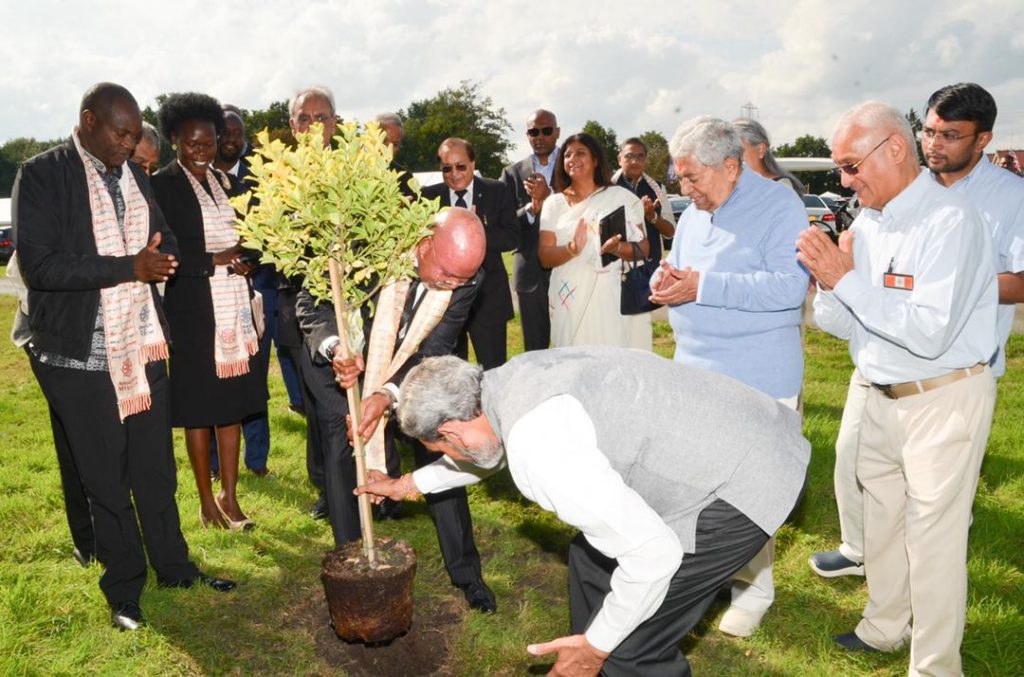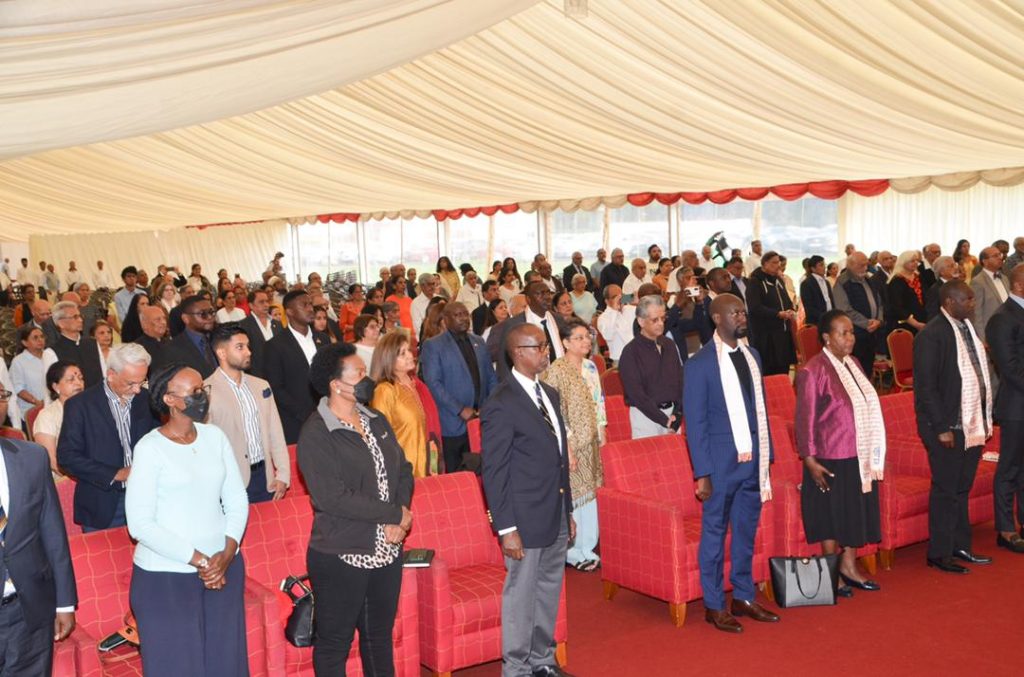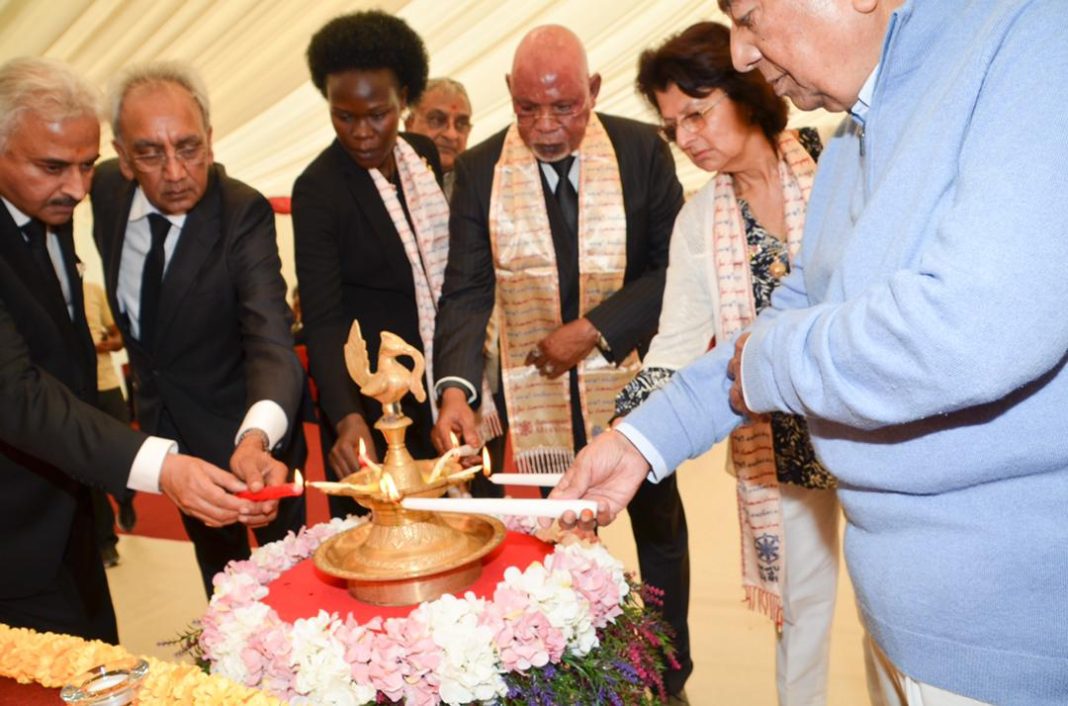They sat in their chairs suppressing the urge to burst out with emotion, holding onto the deepest of the memories they have contained for 50 years, reminiscing the good times in Uganda before such a life was snatched from their grip, thanks to a sudden dream by then President Idi Amin Dada.
Exactly 50 years ago (1972), Idi Amin opened a dark and shameful chapter when he decreed that over 50,000 Ugandan Indians who had known nowhere but Uganda as their homeland should abandon their country to begin lives anew elsewhere. Many of these would later end up migrating to the United Kingdom (UK) albeit haphazardly, some landing with less than a penny to their names.
Half a century later, on Sunday, September 11, 2022, at Anoopam Mission, Swaminarayan Temple in Denham, London, a section of these Indians and their families gathered to mark this day and pay homage to Queen Elizabeth II. Speaker after speaker expressed how the 1972 debacle pulled down a temporary curtain on their lives, while at the same time basking in positive testimonies regarding how that low situation propelled them to greater heights.
Lord Dollar Popat, the UK Prime Minister’s trade envoy to Uganda, spoke amidst cheers when he stated that: “This (UK) is my home but my heart is always in Uganda.” Lord Popat, born in Busolwe, current Butaleja District and raised in Tororo District, thanked President Museveni for the “good treatment” of the Indian Community.
He urged the President to appoint more cabinet ministers and senior Government officials of Indian origin while at the same time praising the President for picking H.E Nimisha Madhvani as the High Commissioner of Uganda to the UK, which he said galvanises the friendship between Uganda and the Indian Community. “The friendship between Uganda and the Asian community was producing about 240million pounds. The British government picked me to take charge of the trade in Uganda, and added on Rwanda and DRC, being Ugandan myself. I am happy that we are now at about 5 billion pounds. Of course, this is as well an effort by President Museveni for uniting the Asian community,” he said.


H.E Nimisha Madhvani also commended President Museveni for fostering unity amongst the Indian community both in Uganda and the UK.
“President Museveni has reunited us here. For instance, I am a refugee but he has turned me into a High Commissioner,” she said. Lord Rami Ranger, a successful British businessman was
impressed with Uganda’s choice to work with the Indian Community, adding that it would lead to shared success.
He also commended his fellow Asians for turning around the bad times following Amin’s expulsion into very beautiful success stories adding that “the rejects of Uganda are doing very well in the United Kingdom.”
Speaking on behalf of President Museveni, the Minister for Foreign Affairs, Gen. Abubaker Jeje Odongo, thanked the Asian community for maintaining faith in Uganda despite the 1972
disaster.
“Many of you arrived here penniless and destitute but because of your resilience, not only did u survive but you thrived,” Gen. Odongo said. He extended an invite to all of them for the upcoming celebrations on October 15 in Kampala, Uganda, to mark 100 years of the Asian
community in Uganda.
This, he said, is a sign of how much the National Resistance Movement (NRM) fraternity appreciates the contribution of their community and the willingness President Museveni’s Government has to continue working with them. Invited as a guest speaker, BBC journalist, Mr. Allan Kasujja, used his childhood example to relay a message of unity and patriotism to the audience.
Kasujja said that he left Jinja for Kenya when the political situation was not favourable, only returning after the exit of Idi Amin. “My mother lived in Jinja and left for Kenya. The impact was not only on Asians but also on the Ugandans,” he said.
“I speak forty languages today because I was trying to fit in all my life. Today, I would rather be Ugandan than anything else,” he added.
He thanked President Museveni for correcting the mistakes of Idi Amin, as well as ensuring peace to enable prosperity through investment.
At this point, he called upon the Indian community to reward President Museveni by contributing to the social and economic development of the country.
“Forget about the Uganda you hear in the news, forget about all that! Uganda is no longer the same; it has changed a great deal. My call to you, therefore, is: let everyone here do what they can, let us invest in the country! We want to unleash the best version of the Pearl of Africa,” he said.
In 1986, President Museveni welcomed back the Asian community in Uganda and returned their properties to them.
According to President Museveni, the Asian community played a lead role in Uganda’s social and industrial development. Already Asians like former high court Justice Anup Sing Choudry
have been appointed to serve at the highest level of Uganda’s judicial system.
Others, like swimmer Supra Singhal, have represented the country at the Olympics. Uganda’s strong reputation for academia is upheld by the likes of Prof. Mahmood Mamdani.
Others and their descendants have stayed in the countries such as Britain that welcomed them. From Home Secretary Priti Patel to the Liberal Democrats’ Lord Verjee, to Asif Din who played cricket for Warwickshire, scoring a hundred and winning the man-of-thematch award in the 1993 and Natwest Trophy Knal, widely regarded as the best domestic Knal.


President Museveni told the Asians: “There are many (of you) contributing to political, business, and cultural life. Trade between our two nations remains strong; we want to go further still. Through the Commonwealth, we have a unique means of doing so. We should use it to trade closer and better, and make it what it should be: the vehicle for our shared
futures.”
The event was also attended by the Minister of State for Investment and Privatisation, Hon. Evelyn Anite, the Presidential advisor for Special Duties, Mr. Odrek Rwabwogo, Uganda Investment Authority (UIA) Executive Director, Mr. Robert Mukiza, the UIA Board Chairman, Mr. Morrison Rwakakamba and seasoned legislator, Dokolo Woman MP, Hon. Cecilia Ogwal, among others.
As a symbol of renewed hope and friendships, five trees were planted at the peak of the event.























